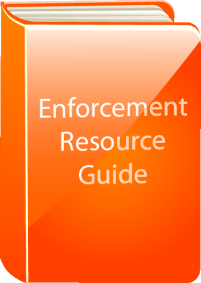Enforcement NewsletterNovember 2013
The decision to investigate is based on sufficient evidence within the complaint to justify further review to determine if the alleged action is a violation of rules of professional conduct, standards or laws. For those cases in which the Board decides to proceed with investigation and/or prosecution, the majority are settled prior to formal adjudication. Most Boards utilize Consent Orders to formalize the settlement agreements. Settlements can include disciplinary action against the Respondent’s license, as well as additional CPE requirements and monetary penalties. In our next issue, we will discuss the investigation process in more detail. In each newsletter we will explore another Component of the ERG. We hope you will use this opportunity to become familiar with the ERG and the benefits it offers to our accountancy boards. Remember that the Guide includes models of state enforcement guides and also provides sample forms for most of the steps discussed above. If you have any information or samples you would like included in the Guide, please forward them to Stacey Grooms at [email protected]. The Enforcement Resource Guide is in a web-based format that is available to current executive directors and members of boards of accountancy through a password protected section of NASBA.org. Any questions regarding the guide can be directed to Stacey Grooms at [email protected]. |
Full Newsletter |
- MEMBER CENTER
- EXAMS
- LICENSURE
- EDUCATION

 In the previous newsletters, we reviewed the benefits of the
In the previous newsletters, we reviewed the benefits of the 